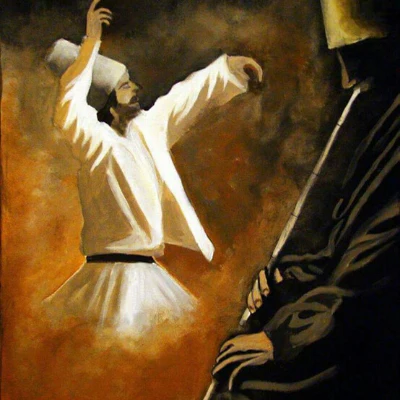Sufism & God
- Vartika Pandey
- Apr 18, 2023
- 2 min read
Updated: Jun 10, 2023
Music plays an important role in Sufism, a mystical branch of Islam. Sufism emphasizes the inner, spiritual dimension of Islam, and music is seen as a means of reaching a state of spiritual ecstasy or "fana", in which the individual loses themselves in the love of God.
In Sufi music, the lyrics often speak of love, devotion, and the longing for union with God. The music is typically performed in a group setting, with a lead singer accompanied by a chorus and a variety of instruments, such as the oud, qanun, and Ney.

One of the most well-known forms of Sufi music is Qawwali, a genre that originated in the Indian subcontinent and is associated with the Chishti Sufi order. Qawwali is characterized by its use of repetition and call-and-response and is typically performed at Sufi shrines or gatherings.
Another important aspect of Sufi music is the concept of sama or spiritual listening. Sama involves listening to music as a means of attaining a higher state of consciousness and connecting with the divine. In some Sufi orders, sama is practiced as a group activity, with participants sitting in a circle and listening to the music in a state of meditation.

While some conservative Islamic scholars have criticized the use of music in Sufism as being contrary to Islamic teachings, many Muslims consider Sufi music to be a legitimate expression of Islamic spirituality. Sufi music has had a significant impact on the wider Islamic world, with Qawwali and other forms of Sufi music becoming popular throughout South Asia and the Middle East.
Overall, the role of music in Sufism and Islamic spirituality is one of using music as a means to
connect with the divine and reach a state of spiritual ecstasy. Through the use of music, Sufis seek to transcend the material world and connect with the divine reality of God.


